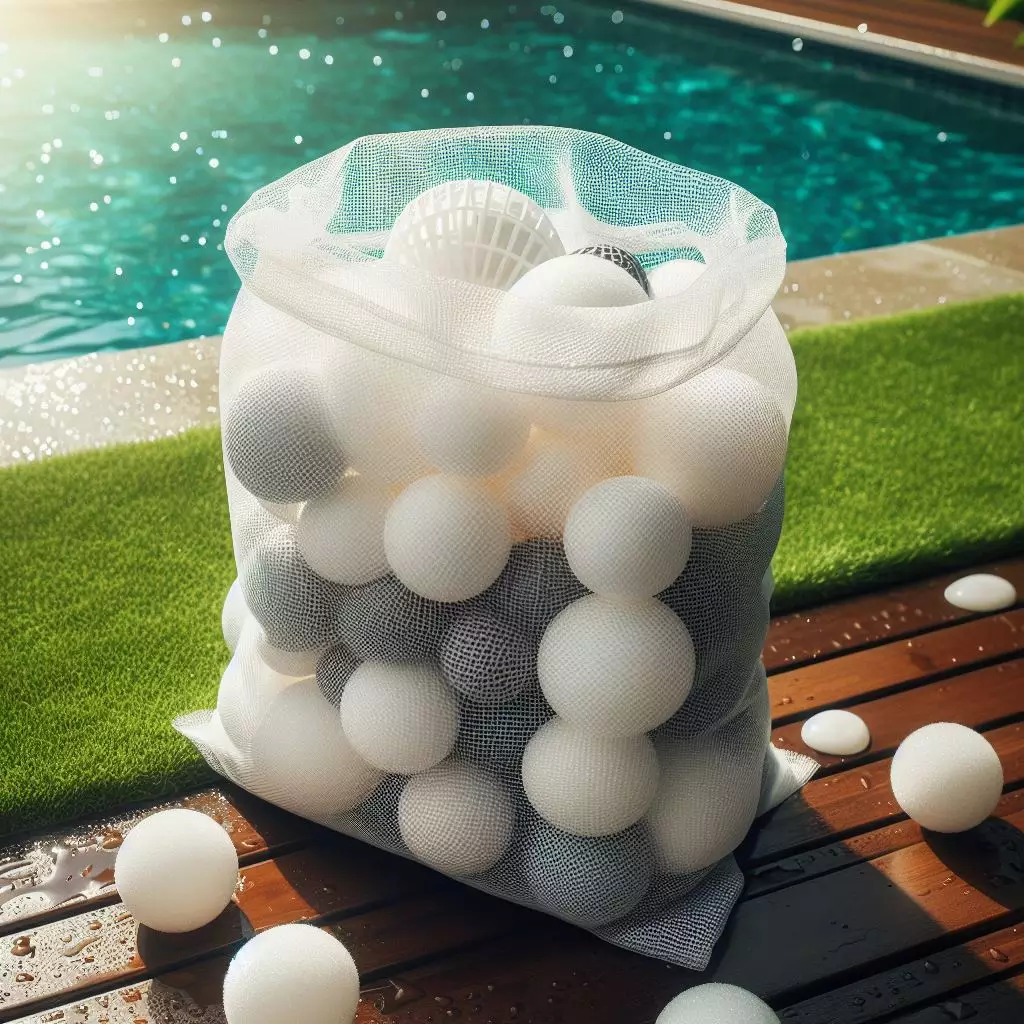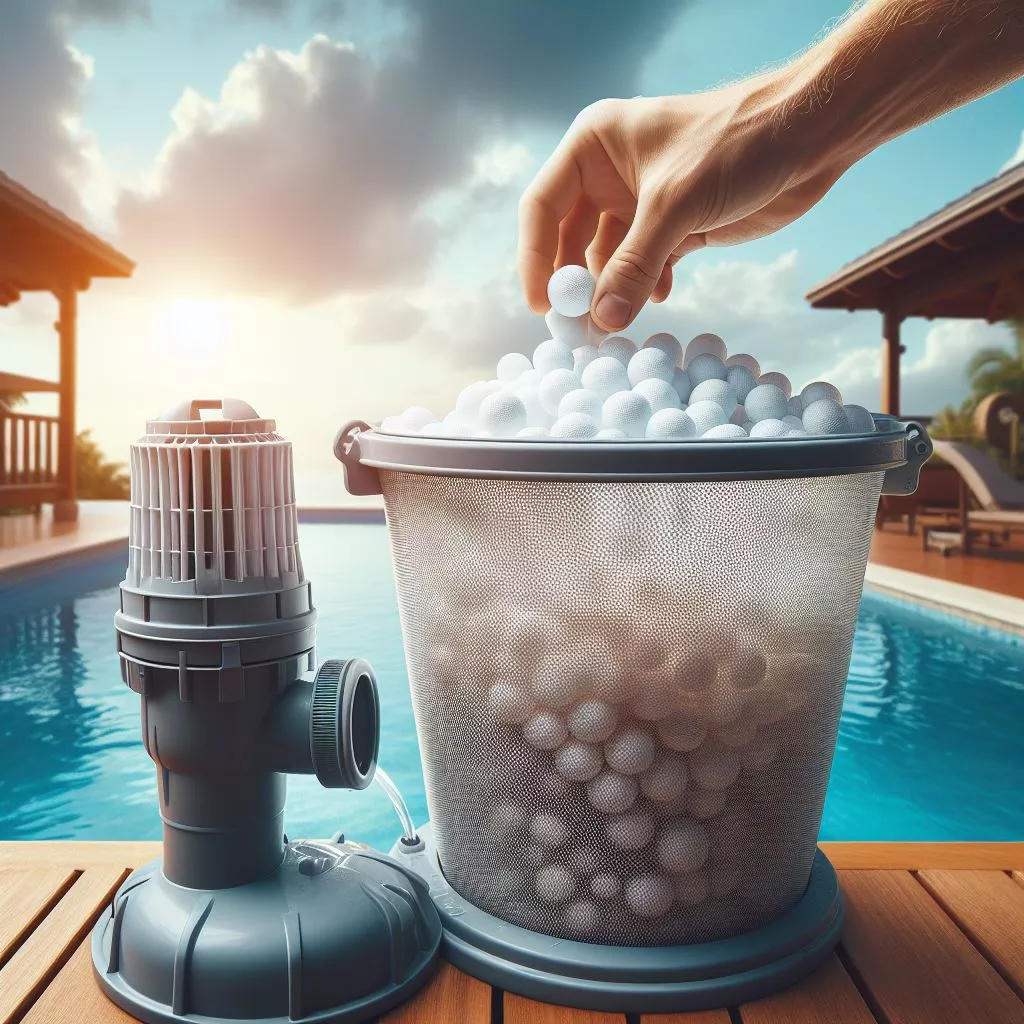Maintaining a clean and pristine swimming pool requires the proper functioning of pool filtration systems. Among the various filtration media available, pool filter balls have gained popularity for their effectiveness and efficiency in trapping debris and contaminants. In this extensive guide, we will explore the importance of adjusting pool filters to the optimal filtration speed when using pool filter balls, along with the benefits, techniques, and considerations for achieving optimal filtration performance.

Understanding Pool Filter Balls
Composition and Design: Pool filter balls are typically made from durable polyethylene or polyester fibers, engineered to provide efficient filtration while withstanding the rigors of pool water chemistry and circulation. Their lightweight and spherical design allow for easy handling and distribution within the filter tank.
Filtration Efficiency: Pool filter balls offer excellent filtration efficiency, capable of capturing particles as small as 1 micron. Their high surface area and porous structure enable thorough filtration, resulting in clearer and cleaner pool water compared to traditional filter media.
Eco-Friendly Alternative: Pool filter balls are a sustainable and eco-friendly alternative to traditional filter media such as sand or diatomaceous earth (DE). They are reusable, long-lasting, and require less frequent replacement, reducing waste and environmental impact.
Importance of Adjusting Filter Speed
Optimal Filtration Rate: Adjusting the pool filter speed to the optimal filtration rate is crucial for maximizing filtration efficiency and water clarity. Operating the filter at the correct speed ensures proper water circulation, allowing the pool filter balls to effectively trap and remove debris and contaminants from the water.
Balancing Filtration and Energy Consumption: Finding the right balance between filtration effectiveness and energy consumption is essential when adjusting filter speed. Operating the filter at excessively high speeds may increase energy consumption without significantly improving filtration efficiency, while operating at low speeds may compromise filtration performance.
Techniques for Adjusting Filter Speed
Variable Speed Pump Controls: Many modern pool filtration systems feature variable speed pumps that allow for precise control of filtration speed. Adjusting the pump speed based on factors such as pool size, bather load, and water quality enables optimal filtration performance while minimizing energy consumption.
Monitoring Pressure Gauges: Pressure gauges installed on pool filtration systems provide valuable feedback on system performance. Monitoring pressure levels regularly and adjusting filter speed accordingly can help maintain optimal filtration efficiency and prevent issues such as clogging or reduced flow rate.
Consultation with Pool Professionals: For pool owners unfamiliar with adjusting filter speeds or optimizing filtration performance, seeking guidance from pool professionals is recommended. Experienced technicians can assess the specific requirements of the pool and provide tailored recommendations for optimal filter speed settings.
Considerations and Benefits
Energy Efficiency: Operating pool filters at optimal speeds helps minimize energy consumption, leading to cost savings and reduced environmental impact. By adjusting filter speeds to match filtration demands, pool owners can achieve efficient filtration without unnecessary energy expenditure.
Extended Filter Life: Properly adjusting filter speeds can also prolong the lifespan of pool filter balls and other filtration equipment. By operating at optimal speeds, filter media experience less wear and tear, resulting in longer-lasting and more effective filtration performance.
Enhanced Water Clarity: Optimal filter speed settings ensure consistent and thorough filtration, resulting in clearer and cleaner pool water. Pool filter balls efficiently trap and remove particles, debris, and contaminants, enhancing water clarity and creating a more inviting swimming environment.
Conclusion
Adjusting pool filters to the optimal filtration speed is essential for maximizing filtration efficiency and maintaining clean and clear pool water. When using pool filter balls as the filtration media, finding the right balance between filtration effectiveness and energy consumption is crucial. By implementing techniques such as variable speed pump controls, monitoring pressure gauges, and seeking professional guidance, pool owners can achieve optimal filtration performance and enjoy a pristine swimming experience.

